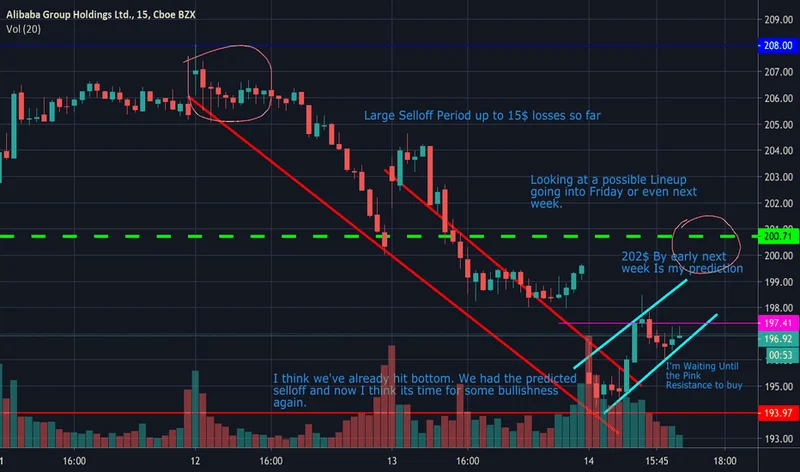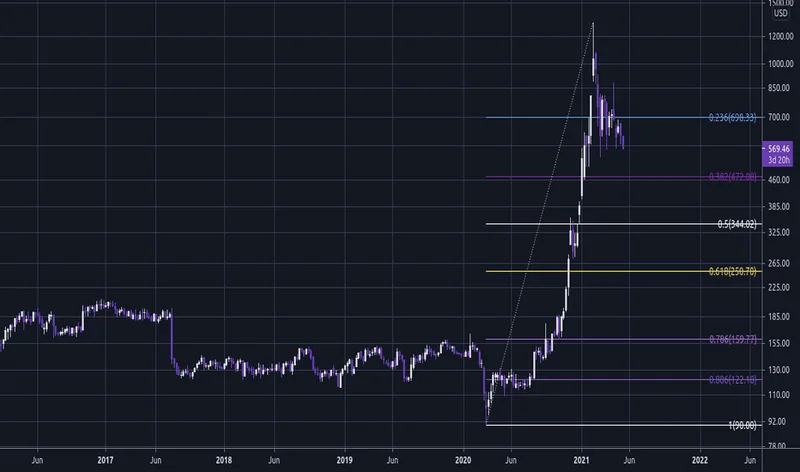BABA Stock's AI Relaunch: Price Today and What It Means – What Reddit is Saying
Alibaba's AI Gambit: From E-Commerce Giant to AI-Powered Future?
Okay, folks, buckle up. Because what's happening over at Alibaba isn't just another tech company chasing the AI dragon—it's a potential paradigm shift in how we think about e-commerce, AI integration, and maybe even global tech leadership. We're talking about a company that's not just dipping its toes in the water, but diving headfirst into the deep end of artificial intelligence.
The news is this: Alibaba (BABA) is doubling down on AI, restructuring its mobile AI app "Tongyi" and rebranding it as "Qwen," after its flagship AI model. Think of it as Alibaba's answer to ChatGPT, but with a distinctly e-commerce flavor. The plan? To weave agentic AI capabilities directly into the Taobao marketplace, creating a shopping experience unlike anything we've seen before. Imagine an AI that doesn't just recommend products, but anticipates your needs, negotiates prices, and handles the entire transaction for you. When I first read about this, it honestly felt like a glimpse into a sci-fi movie. Alibaba Stock Jumps On Plans To Relaunch Its AI App As ChatGPT Competitor - Alibaba Gr Hldgs (NYSE:BABA)
This isn't some overnight decision, either. Alibaba has been quietly building its AI muscle for years, and the numbers speak volumes. Their AI-driven cloud computing segment has been performing incredibly and they've earmarked a cool $53 billion for AI and cloud investment. We're talking serious commitment here, folks. And it's not just about throwing money at the problem; they're developing their own AI inference chips, compatible with Nvidia's (NVDA) platform, to support China's tech self-sufficiency. Now, that's forward-thinking.
More Than Just Shopping: A New Era of AI Agents
But here's the really exciting part: Alibaba's long-term goal is to develop Qwen into a fully autonomous AI agent. Let me clarify that—a fully autonomous AI agent. That means an AI that can learn, adapt, and act on your behalf, without constant human intervention. It's like having a personal assistant, a financial advisor, and a shopping concierge all rolled into one, powered by the vast data and resources of the Alibaba ecosystem. The implications are staggering. What if you could delegate all your tedious online tasks to an AI that understands your preferences better than you do? What if small businesses could leverage these AI agents to compete with larger corporations on a more level playing field?

Of course, this raises some important questions. How do we ensure these AI agents are acting in our best interests, and not just maximizing profits for Alibaba? How do we protect our data and privacy in a world where AI is constantly learning and adapting? These are crucial ethical considerations that we need to address as this technology evolves. It reminds me a little bit of the early days of the internet—a time of incredible opportunity, but also of significant risk. The key, as always, is to proceed with caution, transparency, and a strong commitment to human values.
And speaking of impressive feats, Alibaba’s Qwen models are already turning heads. In a live crypto trading challenge, Qwen3-Max outperformed both top U.S. and Chinese rivals, including OpenAI's GPT-5! And Qwen3-Max-Thinking is matching GPT-5 Pro in global mathematics contests. The speed of this is just staggering—it means the gap between today and tomorrow is closing faster than we can even comprehend.
But what does Wall Street think? Well, it's a mixed bag. While some analysts remain bullish on Alibaba's stock (BABA), others are taking a more cautious approach. TipRanks’ AI Analyst Rina Curatex (powered by OpenAI-4o) recently cut the rating to Neutral, citing concerns about weak free cash flow and rising debt. However, the average Alibaba price target still points to almost 24% upside potential, and analysts generally maintain a "Strong Buy" consensus. AI Analyst Downgrades Alibaba Stock (BABA) to Hold and Trims Price Target Despite Wall Street Optimism
Personally, I'm not surprised by the cautious sentiment. Investing in AI is a long-term game, and it requires patience and a willingness to embrace uncertainty. But I believe that Alibaba's commitment to AI is a strategic masterstroke that will pay off handsomely in the years to come. It’s not just about e-commerce anymore; it’s about creating a new AI-powered future, and Alibaba is positioning itself to be a major player in that future. What this means for us is… but more importantly, what could it mean for you?
The AI Revolution is Coming, Ready or Not!
Related Articles
Hong Kong GDP Forecast Raised: What's Behind the 'Robust' Performance?
Hong Kong's GDP Revision: Is It Just Smoke and Mirrors? Hong Kong's government recently bumped up it...
Oklo's Next-Gen Nuclear Power: The Breakthrough Technology & Its Vision for the Future
I was listening to the financial news the other day—a habit I keep not for stock tips, but for cultu...
Gold Price Analysis: Today's Price, Key Metrics, and the Silver Correlation
Gold's Dizzying Climb to $4,000: A Sober Look at the Numbers Behind the Hype The numbers flashing ac...
Fifth Third Swallows Comerica for $10.9B: Why It's Happening and Why You Should Care
So, another Monday, another multi-billion dollar deal that promises to "create value" and "drive syn...
Applied Digital's Earnings Report: What to Expect and What It Signals for the Future of AI
Yesterday, for a few dizzying minutes after the market closed, it looked like the story might be a s...
MicroStrategy (MSTR) Stock: Analyzing the Bitcoin Correlation and Its Price Action
The recent price action in Strategy’s stock (MSTR) presents a fascinating case study in market perce...





